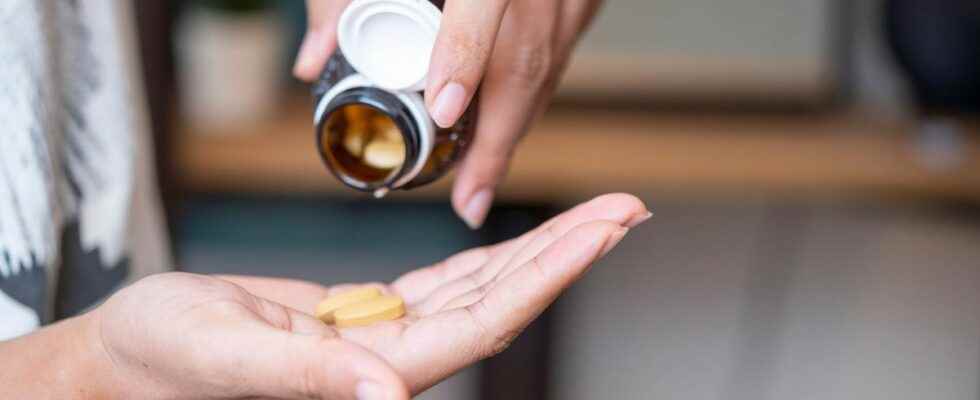Published on
Updated
Reading 3 mins.
Fish oil, garlic, cinnamon, turmeric… The natural food supplements touted to reduce cholesterol would ultimately have no significant effect.
You thought you could lower your cholesterol with natural food supplements? You better save your money and change your ways! That’s about the conclusion of a new US study that tested the effects of 6 supplements on LDL (or bad) cholesterol levels, compared to prescription statins. According to her, the supplements tested have no significant effect, when statins operate a decrease of an average of 35%.
The 6 supplements… that don’t work
The study, conducted by researchers from the Cardiology Department of the Cleveland Clinic Foundation, tested the effects of 6 supplements believed to help lower cholesterol: fish oil, garlic, cinnamon, turmeric, plant sterols and red yeast rice.
Over a 28-day, or 4-week period, 190 people between the ages of 40 and 75 were randomly assigned to take low-dose rosuvastatin, one of six dietary supplements, or an inactive placebo. At the end of this period, several facts have been observed:
- Participants who took the statin saw a 35% decrease in LDL cholesterol compared to the placebo group;
- People taking the statin also had a greater decrease in total cholesterol and triglycerides than the placebo group;
- People taking either supplement or the placebo saw no significant benefit over the 28 days;
- People taking the garlic supplement saw their LDL cholesterol levels increase by almost 8%.
Adverse event rates were similar for all groups, the researchers found.
Statins work but are sometimes shunned
Cholesterol is a waxy, fat-like substance made by the liver that circulates in the blood. It is useful for making certain hormones and helping to digest fatty foods. But having too much LDL cholesterol, as well as too many triglycerides in the blood can increase the risk of heart attack and stroke.
Statins are generally recommended for adults between the ages of 40 and 75 with certain risk factors for cardiovascular disease. However, many are those who do not take this treatment, for fear of side effects, or because patients are more wary of drugs than of certain so-called natural treatments. A survey found that only 45% of Americans over 40 who were eligible for a statin were actually taking the drug.
“What they may not realize, however, is that the safety of dietary supplements is not evaluated with the same rigor as prescription drugs,” noted Dr. Kershaw Patel, preventive cardiologist and assistant professor of cardiology at Houston Methodist in the magazine’s lines Healthline in response to this study.
The mention “natural” is not a guarantee of quality
The question of food supplements also stems from a false idea according to which the “natural” would be better for health, and here against cholesterol. However, although dietary supplements are sometimes marketed as “natural”, they are not always safe, especially when people take other supplements or medications. Additionally, the industry is largely unregulated, so the quality of products and ingredients can vary from manufacturer to manufacturer,
Finally, there may be unforeseen drug interactions between supplements and other over-the-counter or prescription medications. Taking these supplements is not trivial.
However, the study concedes a limit to its results: the follow-up of only 28 days may not allow us to see if there are results over the longer term.
Recommendations for lowering your cholesterol
You still want to turn to natural solutions to lower bad cholesterol ? In addition to taking statins, there are recommendations that involve lifestyle changes that are more effective than dietary supplements:
- Reduce the overall fat intake in your diet;
- Eat fruits and vegetables, and adopt a varied diet in general;
- Stop smoking;
- Physical exercise, if possible 150 minutes per week.
